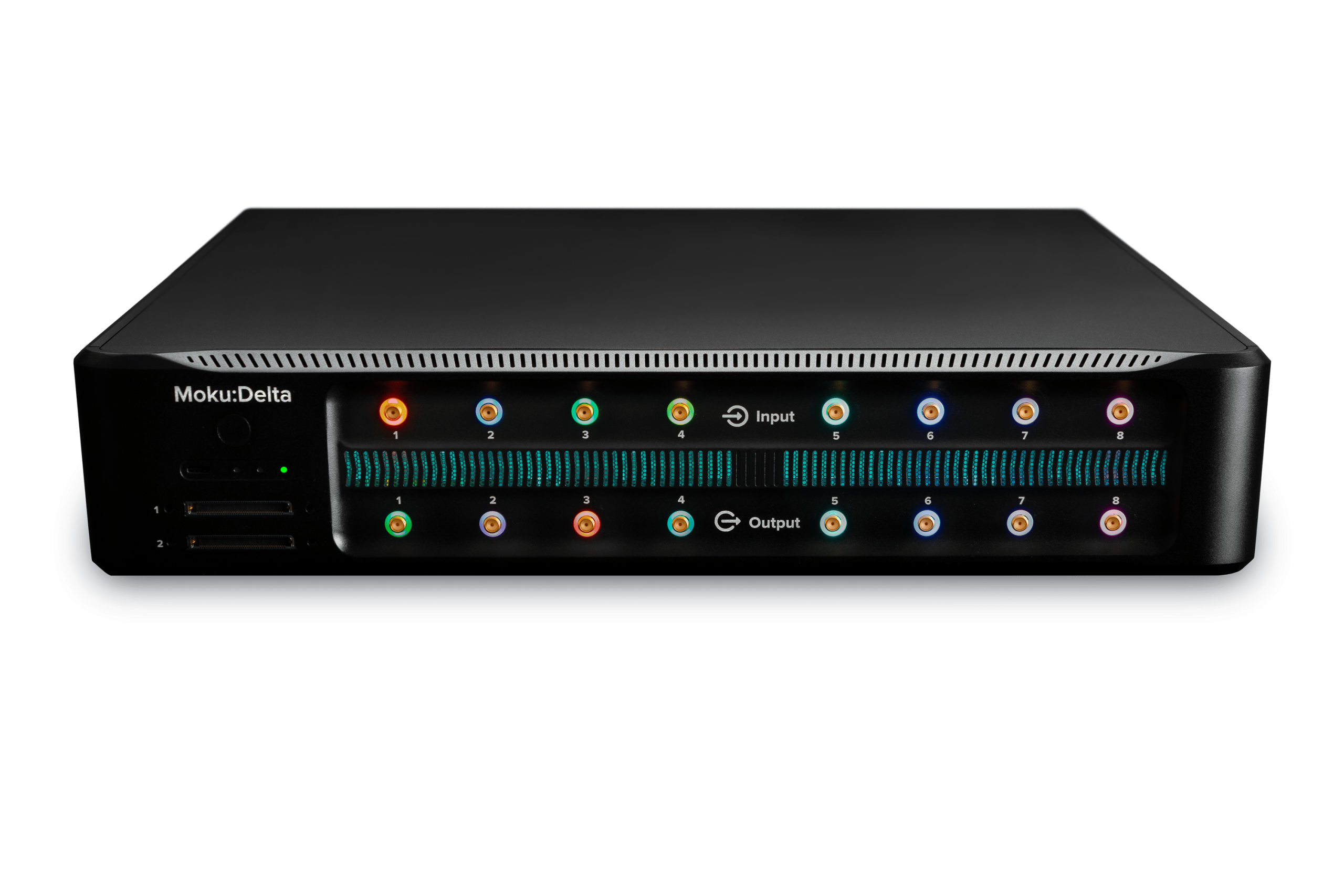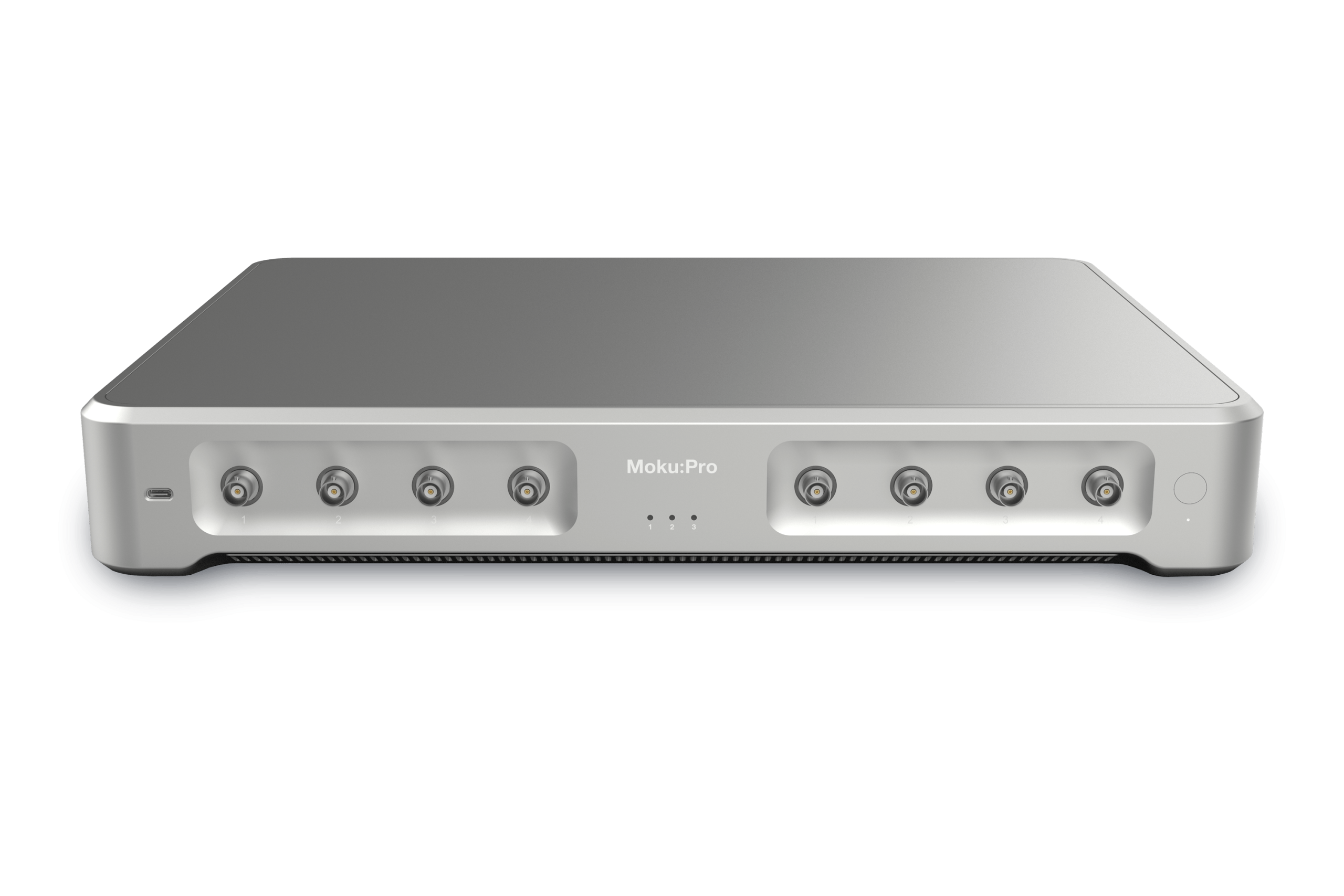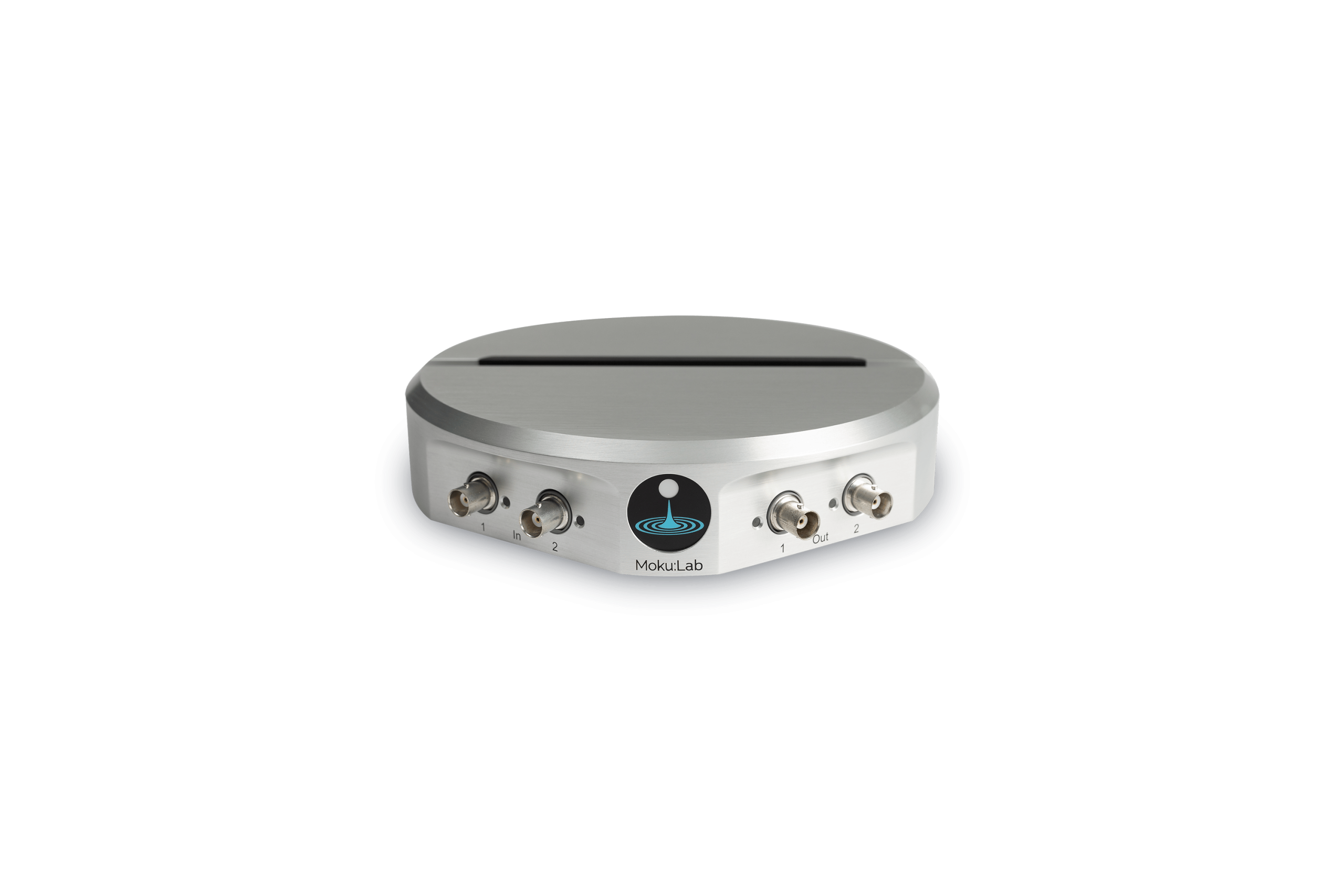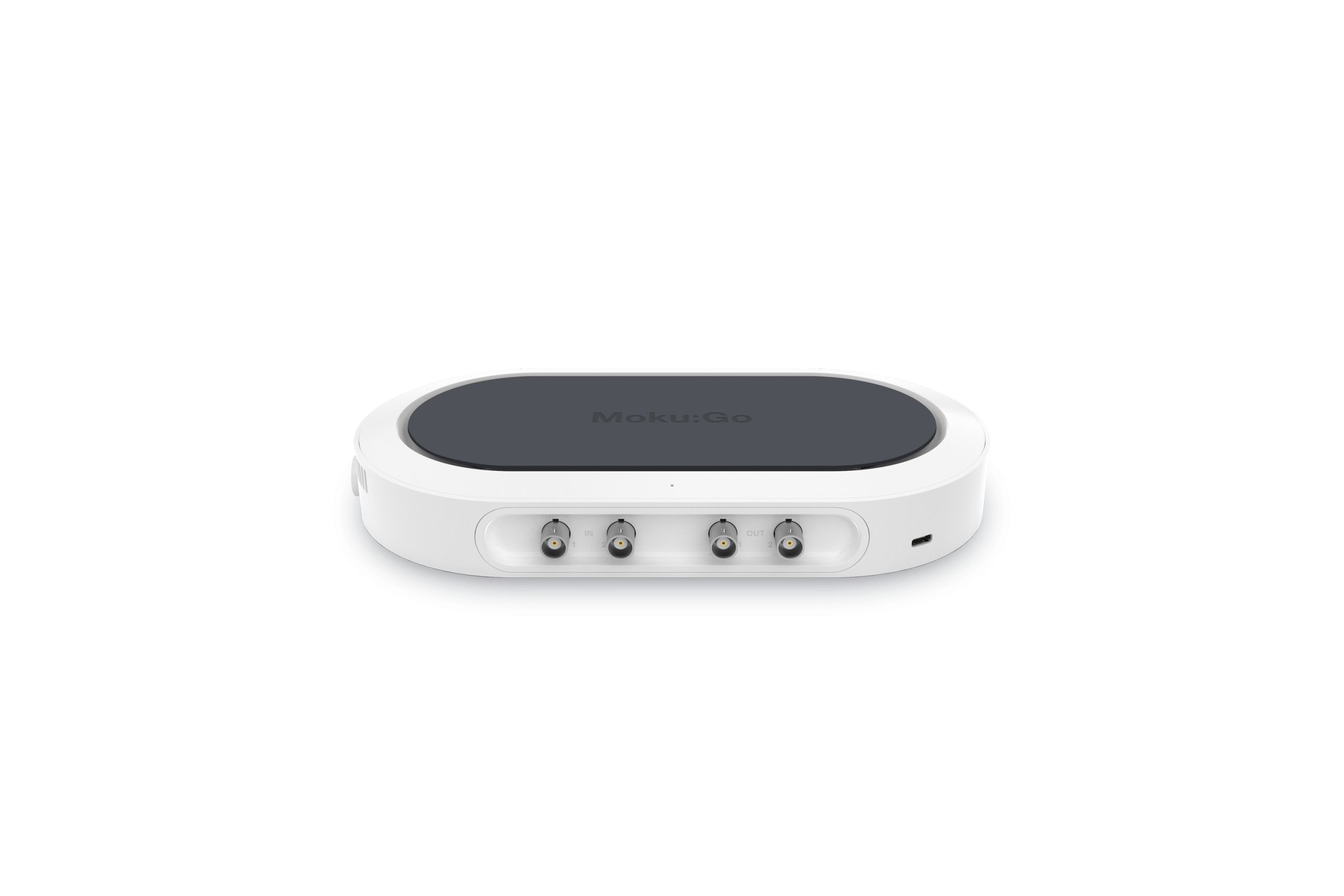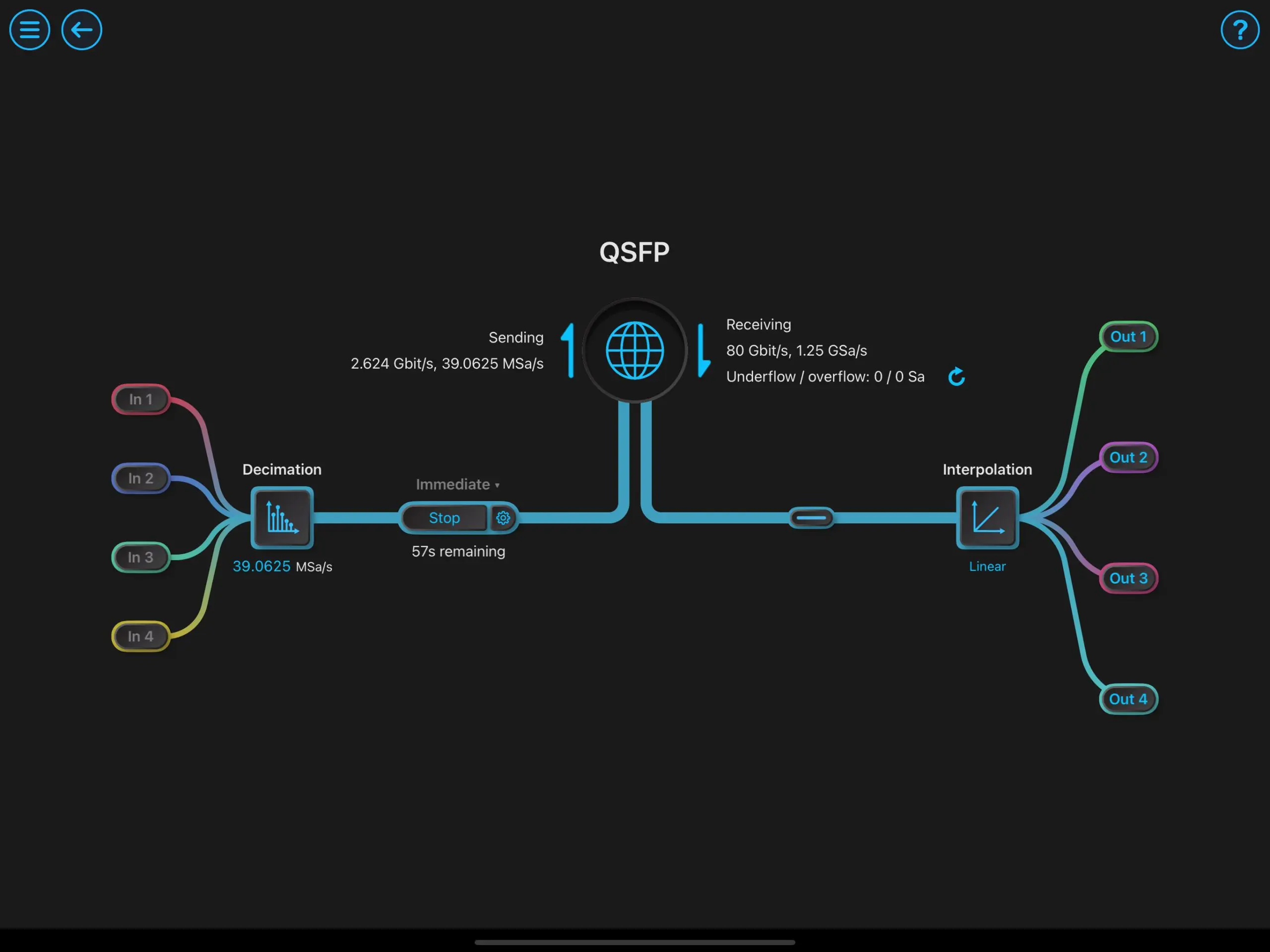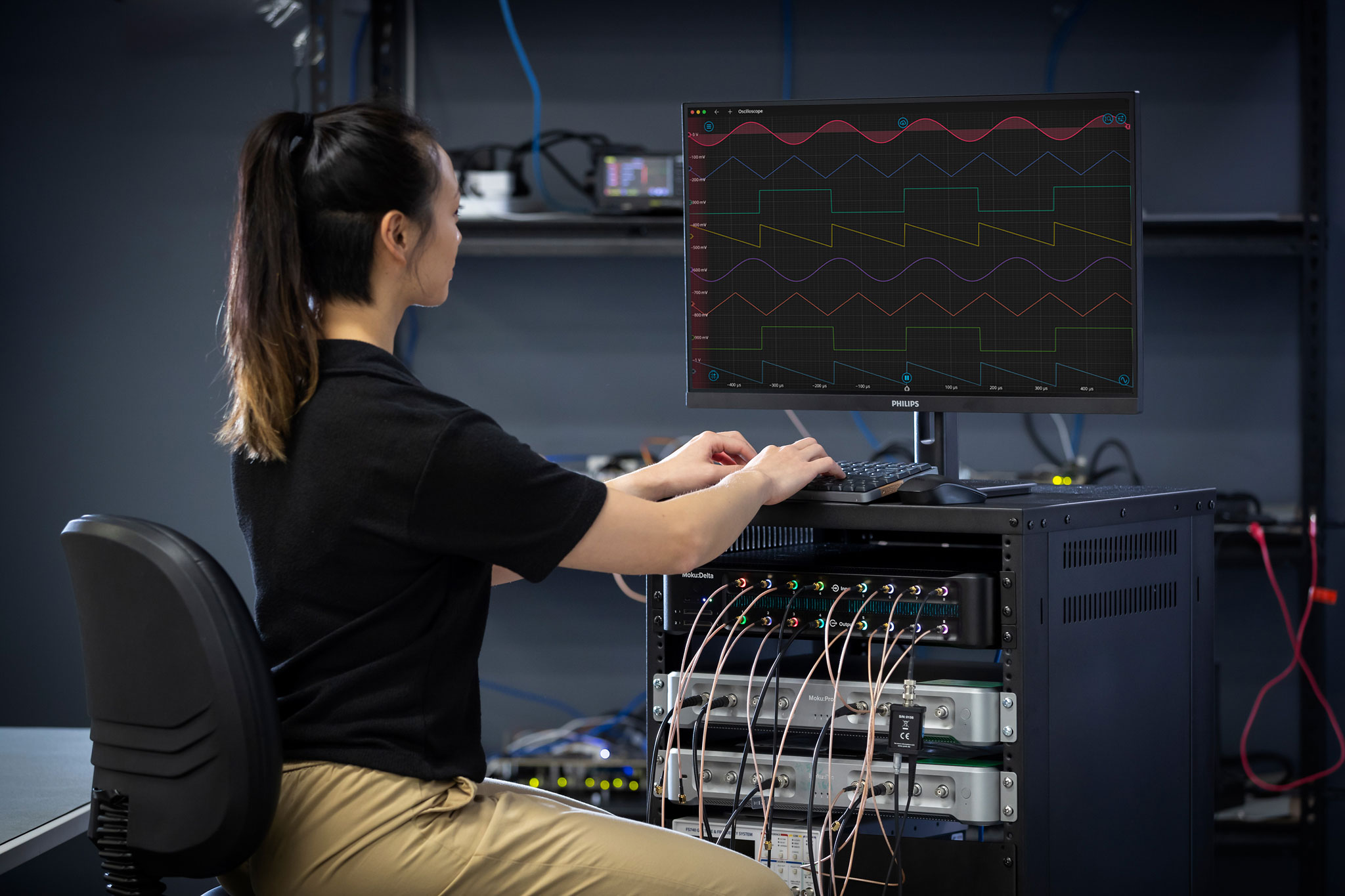Moku: version 3.0 brings significant upgrades to Moku:Lab, introducing updates across the suite of instruments. This release provides a variety of updates and improvements, but is not backward compatible with software version 1.9. Moku:Lab users should review the following migration guides to ensure an optimal experience when upgrading from version 1.9 to 3.0.
What new features are included in version 3.0?
Most notably, this update brings Moku Cloud Compile (MCC) and Multi-instrument Mode (MiM) support to Moku:Lab. MCC allows users to develop custom FPGA signal processing algorithms and run them alongside Moku instruments in MiM. MiM for Moku:Lab allows users to run two instruments simultaneously, with full access to the analog inputs and outputs of the device, all connected by a lossless, 6 Gb/s digital connection.
Users will also gain full Windows and macOS support for all Moku:Lab instruments, along with upgraded and fully supported Python, MATLAB, and LabVIEW APIs.
Many individual Moku:Lab instruments also gain new features in this update, including:
- Frequency Response Analyzer
- Increased sweep length from 512 to 8192
- Maximum frequency has been increased from 120 MHz to 200 MHz
- New Dynamic Amplitude feature automatically adjusts output signal for optimal dynamic range
- Input saturation warnings
- New In/In1 measurement mode
- Math channel now supports arbitrary complex-valued equations involving the channel signals, enabling new types of complex transfer function measurements
- Input signals can now be measured in dBVpp and dBVrms in addition to dBm
- Sweep progress is now displayed on the graph
- Frequency axis can now be locked to prevent accidental changes during a long sweep
- Laser Lock Box
- Improved block diagram shows scan and modulation signal paths
- New locking stages feature allows customizing lock procedure
- Improved performance of low-frequency PLL locking
- 6-digit precision for phase values
- Improved performance of low-frequency PLL locking
- Minimum PLL frequency decreased to 10 Hz
- External PLL signal can be frequency multiplied up to 250x or divided down to 0.125x for use in demodulation
- Lock-in Amplifier
- Improved performance of low-frequency PLL locking
- Minimum PLL frequency decreased to 10 Hz
- External PLL signal can be frequency multiplied up to 250x or divided down to 0.125x for use in demodulation
- 6-digit precision for phase values
- Oscilloscope
- Deep memory mode – save up to 4M samples per channel at up to 500 MSa/s
- Phasemeter
- Frequency offset and amplitude can now be output as analog voltage signals
- Phase-locked sine wave output can be frequency multiplied up to 250x or divided down to 0.125x
- Output signals can have a DC offset added
- Improved bandwidth range (1 Hz to 1 MHz)
- Advanced phase wrapping and auto-reset functions
- Spectrum Analyzer
- Improved noise floor (up to 10 to 15 dB lower at spans below 10 kHz)
- Logarithmic Vrms and Vpp scale
- Five new window functions (Bartlett, Hamming, Nuttall, Gaussian, Kaiser)
- Waveform Generator
- Noise output
- Pulse width modulation (PWM)
- 6-digit precision for phase values
- Other
- The equation editor which can be used to generate custom waveforms in the Arbitrary Waveform Generator and custom filter kernels in the FIR Filter Builder now supports sinc and square wave functions
- Binary LI files created during data logging can now be converted automatically to CSV, MATLAB, or NumPy formats when downloading them from the device
Non-backward compatible updates
Due to the significant update to the Moku:Lab firmware and software, some changes are not backward compatible. Most notably, these changes include:
- Data logging to an internal RAM filesystem is no longer supported. This means that the maximum data logging rate is limited by the speed of your SD card. Improved data logging features will be included in a future release.
- Data logging directly to CSV format is no longer supported. However, the Moku: software can convert binary log files to CSV, MATLAB, or NumPy formats automatically when downloading the file from the device. Alternatively, there is a converter tool available (both GUI and command line) to facilitate file conversion.
- The Moku API has changed significantly and scripts written for Moku:Lab will require some rewriting to work with version 3.0. For more information on how to migrate scripts to version 3.0, preview the API migration guides below.
In addition, there are some changes to the compatibility of the Moku:Lab software:
- The Moku: iPad software requires iOS 13 or later. iPad models that cannot run iOS 13 reached end-of-life more than 2 years ago. Everyone is encouraged to update their iPad to the latest iOS version for security reasons.
- The Moku: software for Windows requires Windows 10 or later.
Moku:Lab migration guide
For information on the Moku: app updates, new features, regressions, and downgrade instructions, please refer to the Moku:Lab migration guide here.
API migration guides
We’re here to help
For more information or access to version 1.9, contact support@liquidinstruments.com.
